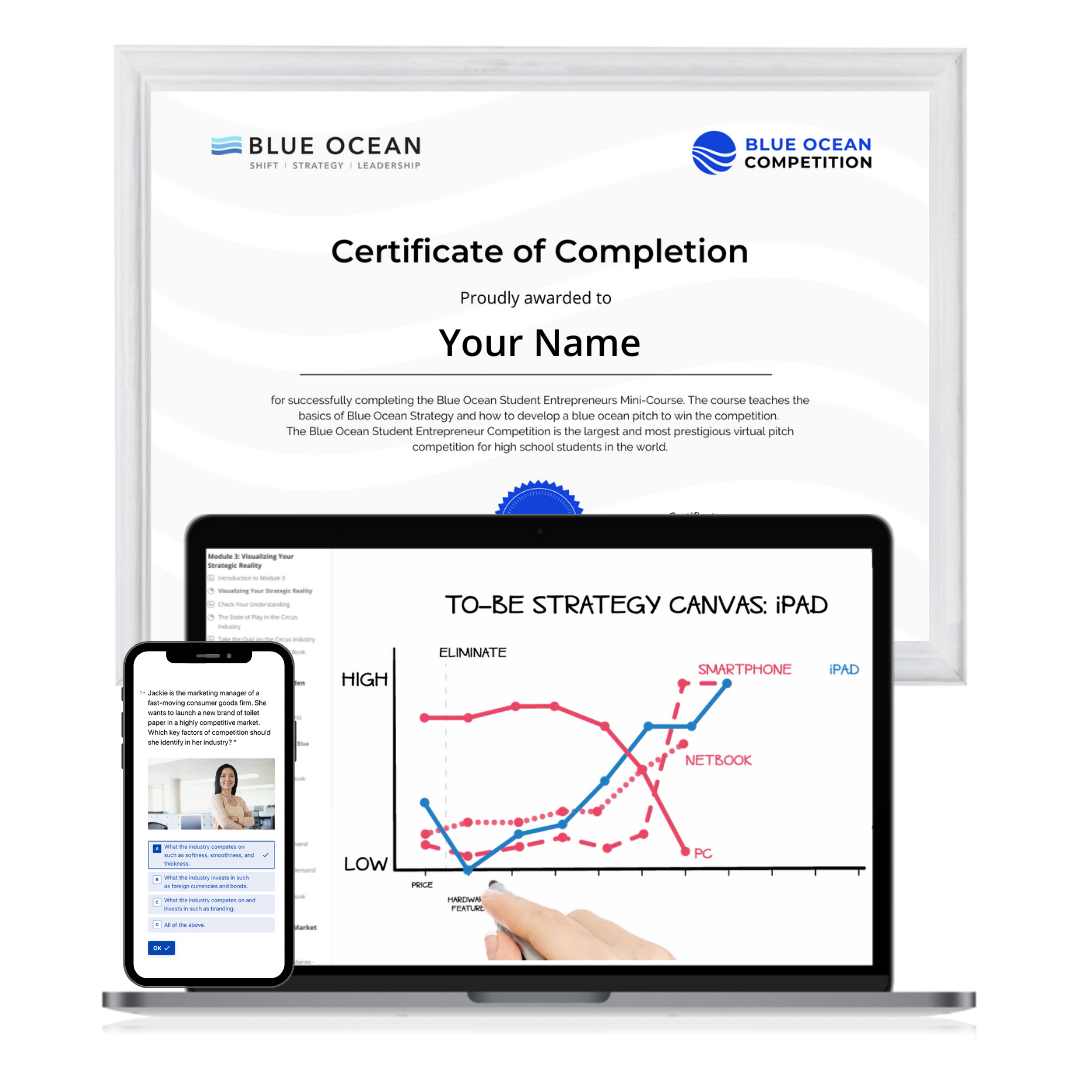By Eric Sera,
Traditional classrooms emphasize memorization, but real learning happens through hands-on problem-solving. Project-Based Learning (PBL) transforms education by fostering critical thinking, creativity, and collaboration—skills essential for the future. Eric Sera, a teacher at Munster High School in Indiana, explores how PBL, combined with Blue Ocean Strategy, helps students move beyond competition to create innovative solutions and entrepreneurial opportunities.
Video transcript
Traditional education often focuses on memorization and standardized testing.
But research shows that students learn best when they are actively engaged in solving real world problems.
That’s where project-based learning or PBL comes in.
A method proven to boost engagement, critical thinking and long-term retention.
What is project-based learning?
Project-based learning is students actively exploring real world challenges.
It encourages collaboration, creativity and problem solving.
It prepares students for college, careers and entrepreneurship.
And the numbers back it up. Studies show that 63% of PBL classrooms outperform peers in traditional settings in social studies, science and math.
91% of students say PBL makes learning more engaging.
PBL increases student retention by up to 25% compared to traditional methods.
Students in PBL environments show a higher ability to apply knowledge to real world situations.
How does Blue Ocean Strategy fit into this?
Blue Ocean Strategy is all about breaking away from competition and creating new uncontested market space.
Instead of competing in a crowded red ocean, businesses focus on value innovation.
In the classroom, the Blue Ocean mindset is a perfect match for project-based learning.
It encourages creative problem solving. Students identify unmet needs and create solutions.
Just like businesses that apply the Blue Ocean strategy framework.
It fosters an entrepreneurial mindset. PBL students learn to think like innovators, developing business models that redefine industries.
In any business discipline, the ability to think beyond competition is a key skill for success.
Imagine a classroom where students just don’t learn about companies like Apple, Disney, Google or Starbucks.
They apply those strategies to create their own innovative ideas.
Instead of writing a report, students design a product.
Project-based learning isn’t just about education.
It’s about preparing students to think differently, innovate boldly and shape the future.Combined with Blue Ocean Strategy, students gain the tools to create their own opportunities rather than compete with existing ones.









